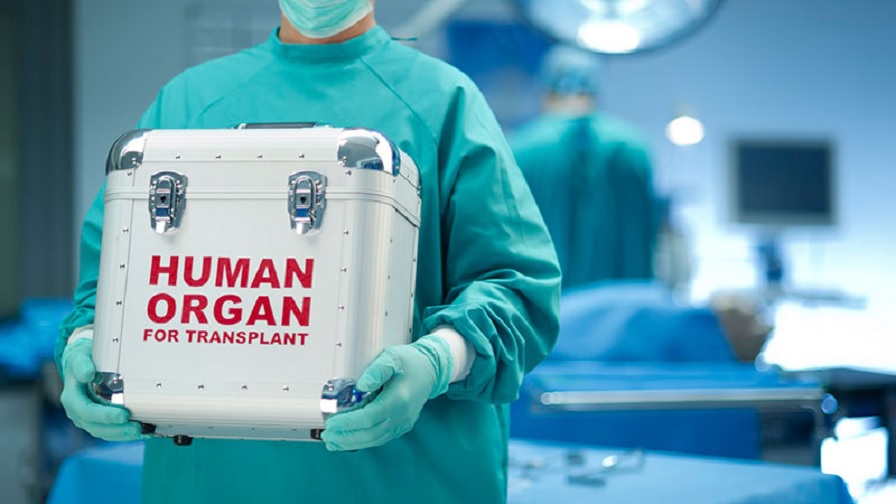In Brazil, more than 59,000 people are waiting for organ transplants. But in 2022 alone, more than 45% of the families with brain death cases did not agree with donating the patient’s organs.
To celebrate the National Day for Organ Donation, the Ministry of Health launched, on Tuesday, September 27, the National Campaign to Encourage Organ and Tissue Donation 2022.
With the slogan “Love to overcome, love to start over”, the folder aims to convince the population about the importance of organ donation and raise awareness among health professionals who deal with this delicate situation for families.

The portfolio’s executive secretary, Bruno Dalcolmo, who is acting as substitute minister, highlighted the scope and long work done on the program. “Having a reference program, as is the one in Brazil, perhaps the main transplant program in the world, is not something trivial.
“It was built over decades, over many years, of a lot of effort and a huge group of people, both in the civil society and in the public power, and, obviously, also private companies,” he stressed.
According to the manager, the role of the private initiative is vital since the companies, especially the airline industry, “have contributed more and more to the promotion, promotion, and, in this specific case, to the transportation of something so sensitive and of such importance.
In absolute numbers, Brazil leads the world ranking in organ and tissue donation and transplants among all the countries that have a public health system in the world, according to data from the World Observatory on Donation and Transplantation.
However, the number of donations has been falling in the country.
“We had a picture of 18.1 [donors per million of the population] in 2019, dropped to 15.8 during the pandemic and persisted at 15.1 in 2021.
“We already see an improvement in 2022, but still with some important regional differences,” commented the secretary of Specialized Health Care, Maíra Botelho.
To reverse this scenario, the campaign will be broadcasted on TV, radio, and outdoor media – such as billboards -, in places of large circulation of people, on websites, and on social networks.
The decision regarding organ donation, in cases of people with brain death, is up to the family members, and that’s why the action will focus on showing the importance of talking and expressing the wish for donation to the family members.
“Improving the family refusal, improving the family approach so that we can advance in the effective donation” is what the manager believes to be the most effective way to review the situation.
TRANSPLANTED PATIENTS’ REPORTS
The event, held in the auditorium of the Ministry of Health, also counted with the participation of two people directly involved with organ donation.
Eduardo da Costa Oliveira, 27, had a heart transplant ten years ago and commented on what changed in his life after receiving the “yes” from a donor family after two years on the waiting list.
“When I was discharged, I could do what I could never do before, which is the issue of childhood: going out in the street, showering, walking, running. “So, thanks to the transplant and the organ donation, I could do all that.”
For the young man, organ donation boils down to one word: life. “I thought that before I would die at any time, but nowadays, every day, I am much better and doing things that I thought I would never do before,” he added.
Life is also what the donation represents for Elaísa Leão Machado. When her oldest son was 19, he was involved in an accident and died of brain death. According to her, the idea of donating his organs came from her youngest son.
“I lost my son, but six mothers gained theirs, and that comforts me.”
In her statement, Elaísa also confessed that she had the opportunity to meet the boy who received her son’s heart. “It was the day of my acceptance. It was the day I was happy and decided to continue with my life,” she concluded.
ORGAN TRANSPORTATION
The ceremony also marked the signing of the renewal of the cooperation agreement for the free transportation of organs, tissues, and transplant teams.
The term was signed by the substitute Health Minister, Bruno Dalcolmo, representatives of the civil aviation airlines (Latam, Gol, and Azul), the Aeronautics Command, the Civil Aviation Secretariat, the National Civil Aviation Agency (Anac), the Brazilian Airport Infrastructure Company (Infraero), and the Brazilian airports.
Dalcolmo reserved space in his speech to praise the collaborative profile of the airlines.
“The airlines have been very much partners of the public power, in several moments, and have appeared of greater national stress”, said the secretary, also alluding to the transportation of vaccines by the organizations during the Covid-19 pandemic.
For Dalcolmo, this posture is one reason that makes Brazil an “international reference” for organ and tissue transplantation.
With information from Brasil 61

